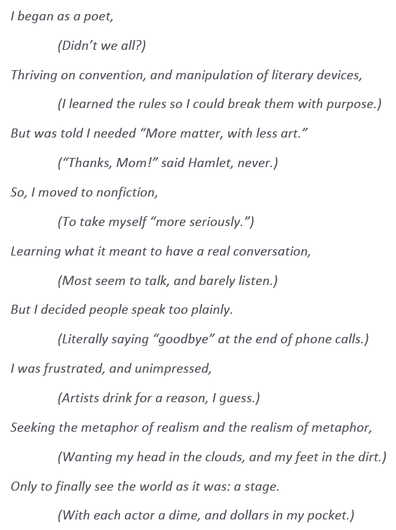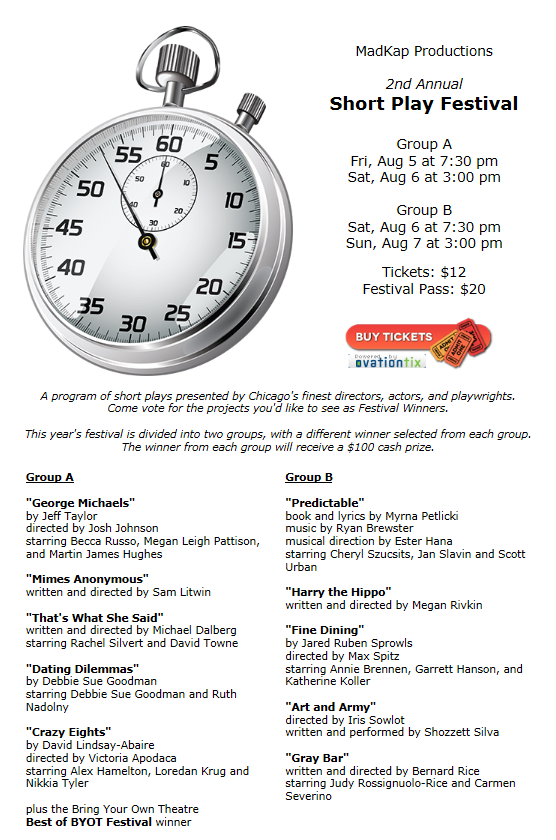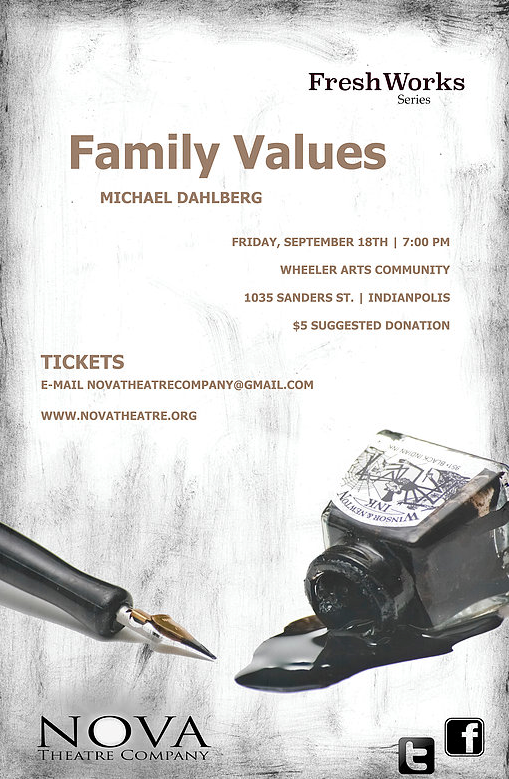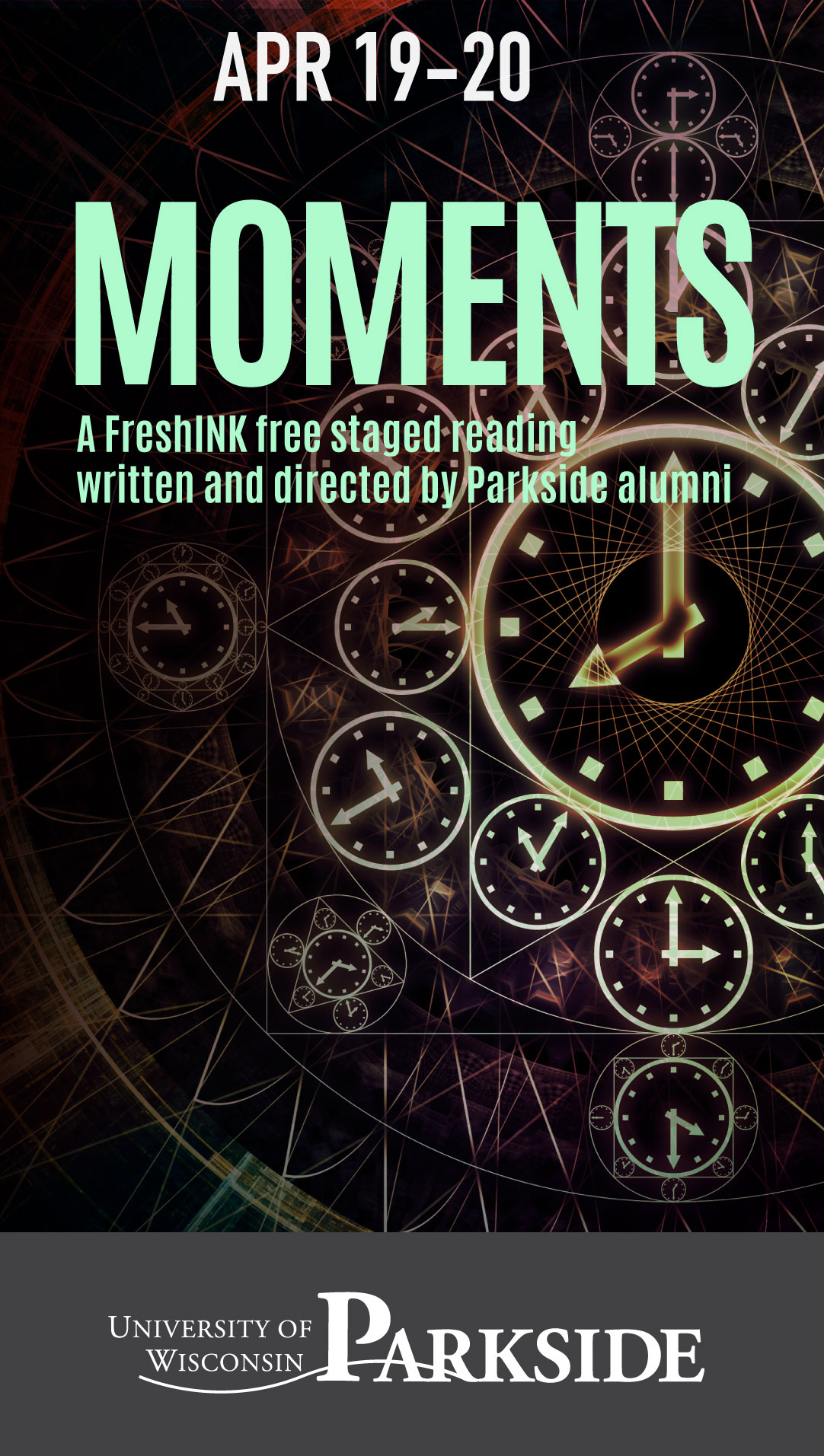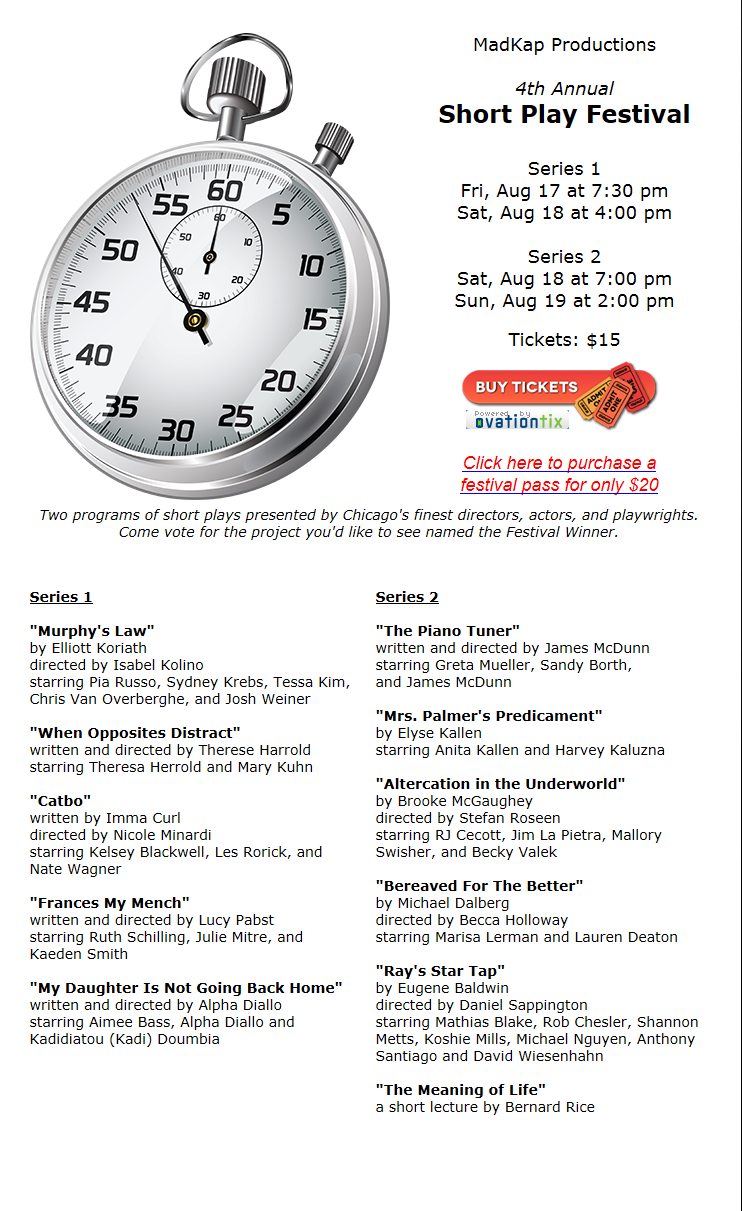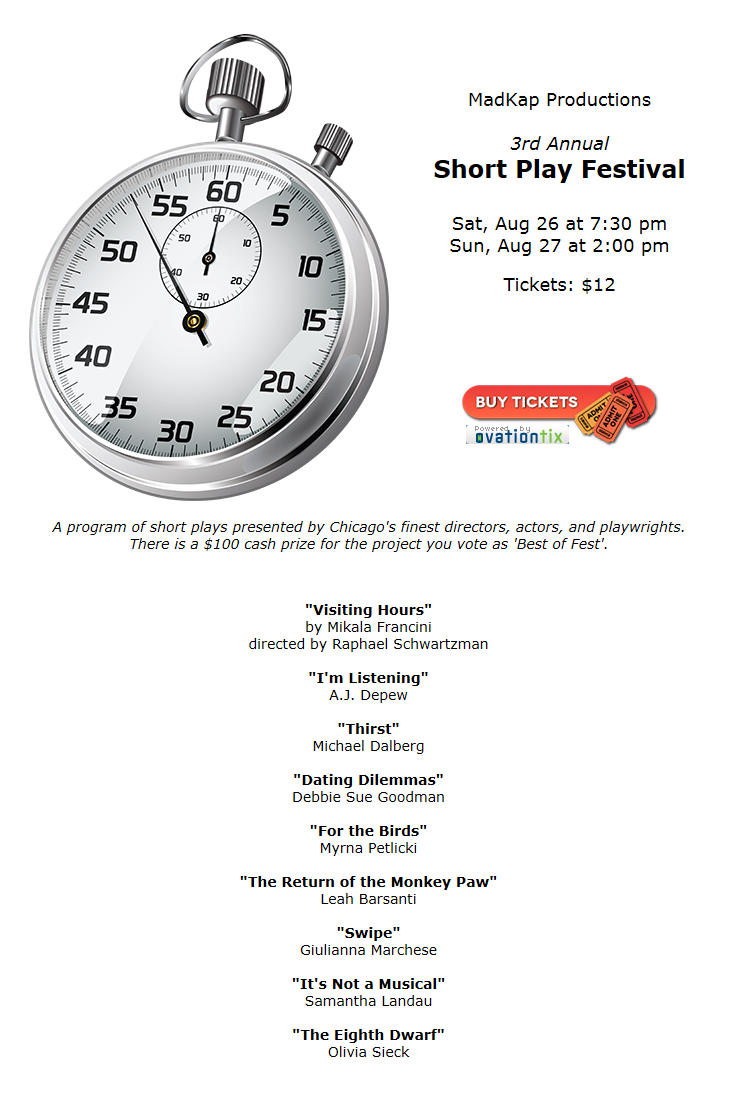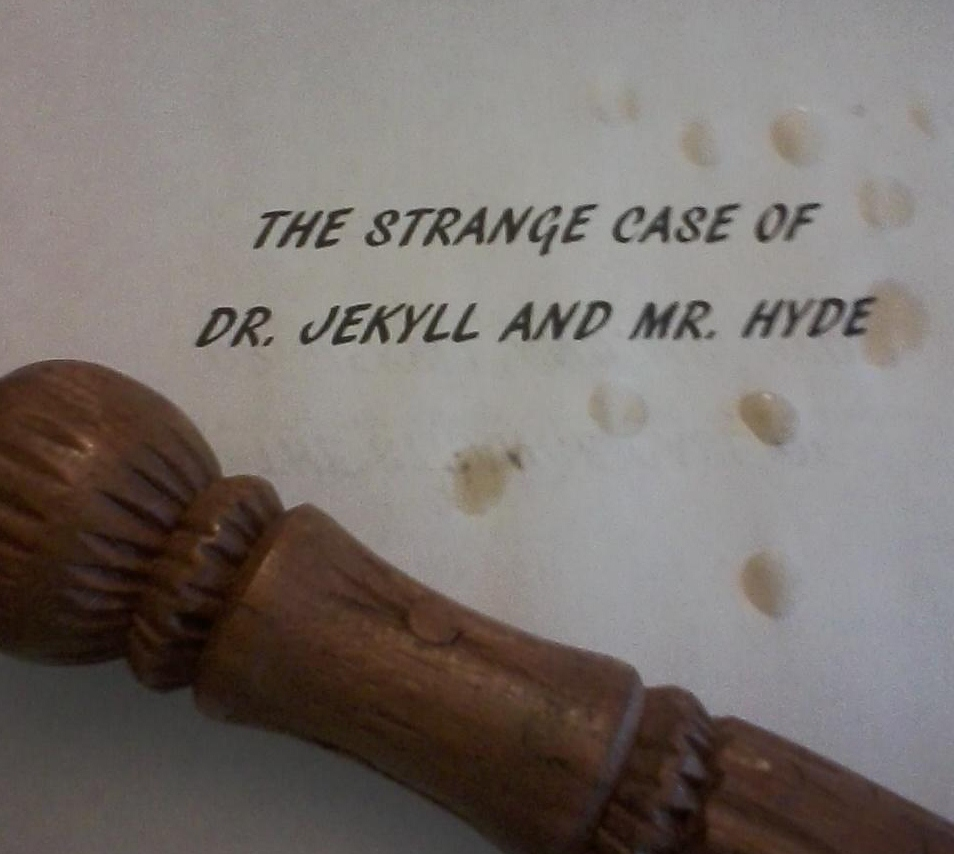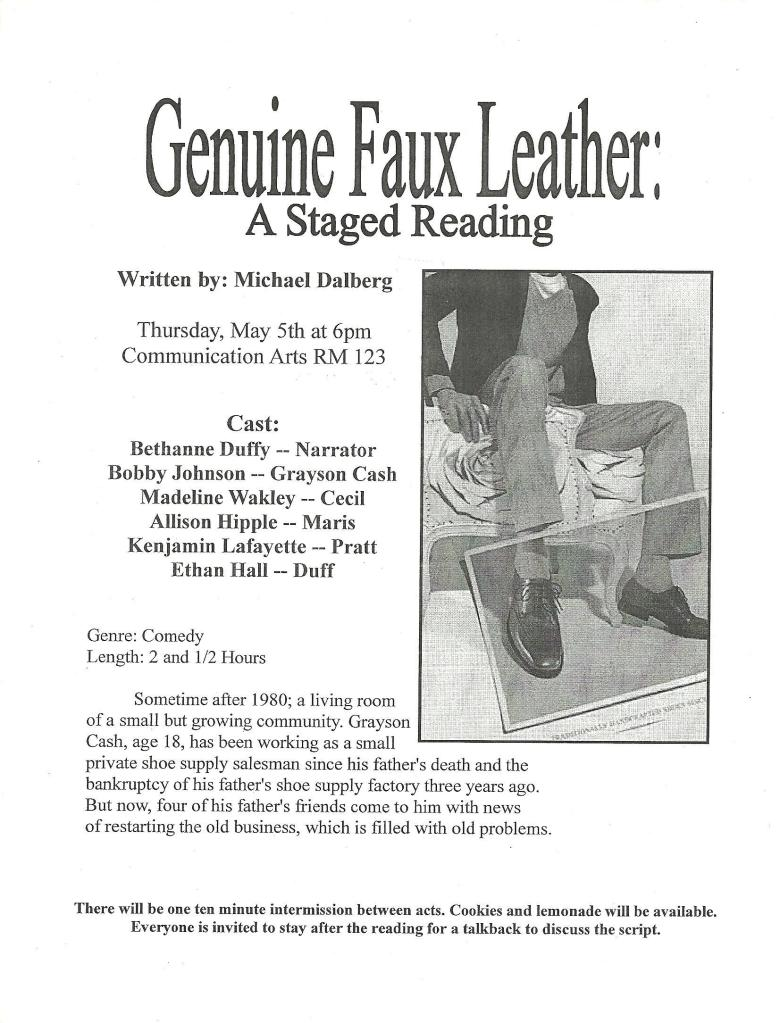Purpose of Writing
I read all these books, blogs, and kitschy bobbles from other writers, playwrights, and poets, and they all detail how they're trying to address social reform, bring attention to inequalities, show there's love in the world, etc. So when I'm asked "Why playwriting?" I find myself at a loss for prose...
|
Your browser does not support viewing this document. Click here to download the document.
|
Page to Stage
As my work has moved forward into production, I've been learning how very different people feel about the text of a play. Directors have come to me with pre-disposed ideas of what playwrights need out of a production of their work. I've been taught that some regard their words as holy, believing that every piece of punctuation must be followed. Others demand daily correspondence on the process; meetings and rehearsals must be run by them so they know exactly what is being done all times. It is due to these people and groups which propel their work to such a pedestal that I find myself having to defend directors and designers who approach me.... because I don't share the sentiment.
|
I understand how individuals or estates may feel about not allowing certain conditions of the play to be altered (character casting regarding description, profanity omission, line cuts, etc.), under the idea of "You wanted to do this play, so do it as it is written." However, theatre is a collaborative process, and that means the playwright, who, it may be said, has a solitary craft, must be willing to collaborate. For me, I am fine with anything in italics being disregarded or changed as desired or necessary (as if it's truly important, I think it should be mentioned in the dialogue); dialogue may be cut to shorten the text for a desired run-time; profanity may be replaced with less offensive words, in case the actor or the audience would be too drawn out by the language; and more. Some would say this stance is lax, and my script should muscle itself forward to demand its message be heard in full... but I think the director is in charge of what message comes across. The playwright merely needs to put the message in the script, and hope the director and their accomplices find their way to it. The playwright, as a shipwright, builds the vessel for the director to captain.
|
To all those who disagree, and feel their work should be done as is, without budge: direct the show yourself. For those who share my sentiments: let's go on a journey.
Wish to produce or direct one of Michael's plays? Click here and contact him!
|
© COPYRIGHT 2019. ALL RIGHTS RESERVED.
|
